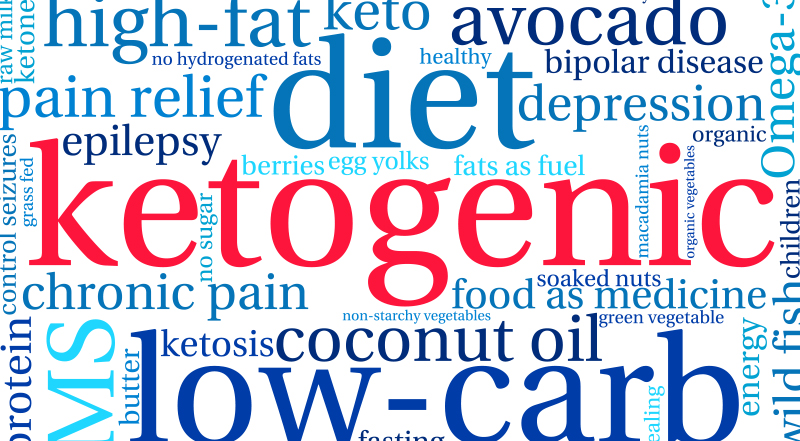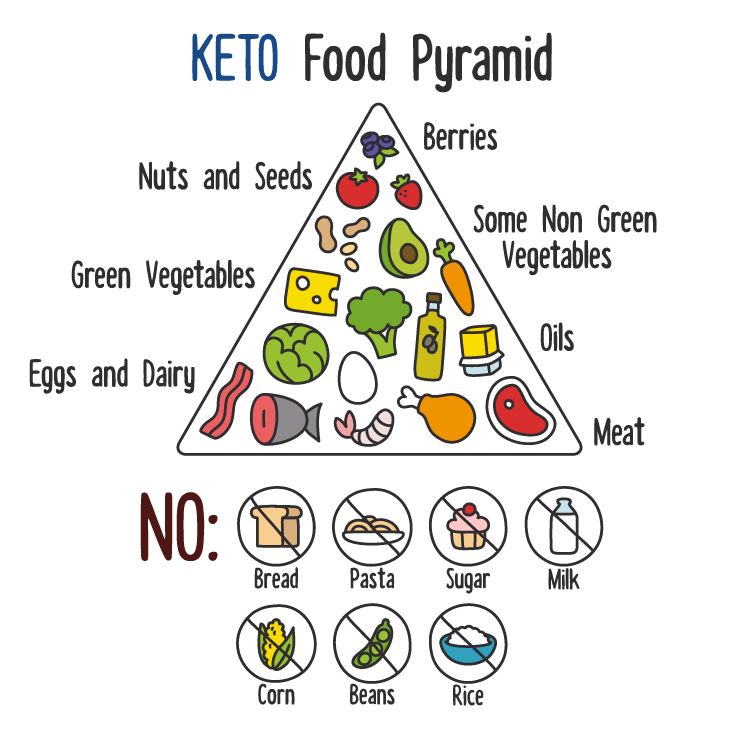
A ketogenic diet is high in fat, sufficient in protein, and low in carbohydrates. It has been known to help those who suffer from obesity, epilepsy, and cancer. Research is still being done, but it is believed that it may also help those with metabolic diseases, autism, depression, migraine headaches, ALS, and diabetes.
How does a ketogenic diet work? Normally our body gets it’s energy from glucose. We get glucose from sugar and carbohydrates. Many of the carbohydrates that we eat, such as bread, rice, potatoes, and fruit, turn into glucose upon entering the body. With a ketogenic diet we are consuming little to no carbohydrates. So, what do our bodies burn for energy? When we consume healthy full-fat foods and little carbs, our liver converts those fats into fatty acids and ketone bodies. The ketone bodies replace glucose as our source for energy, a process known as ketosis. Instead of burning the glucose from carbohydrates and sugar, our bodies can now focus on burning fat.

Major Health Benefits.
Obesity- turns your body into a very successful fat-burning machine.
Cancer- known to eliminate or control cancer progression by “starving” cancer cells. Cancer cells require glucose in order to live. Normal healthy cell can survive off of glucose or ketones.
Epilepsy- known to minimize the frequency and severity of epileptic seizures.
Is a ketogenic diet good for my pet? Absolutely. Take a look at your pet’s food bag. What are the main ingredients? Pets also suffer from obesity, cancer, and epileptic seizures. One of the best and easiest things we can do for our pets is to feed them a grain-free, high-quality diet. Although they can’t tell us how they feel, they can certainly show us through appearance and behavior.
